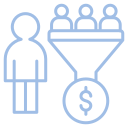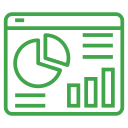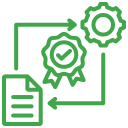The Medical Technology industry is rapidly growing. It is estimated to be worth over $550 billion in 2023 and is expected to reach nearly $800 billion by 2030. The hearing aid sector was estimated at USD 5.9 billion in 2022 and is expected to reach $10.2 billion by 2026. Several factors drive the sector, including technological advancements, miniaturisation, battery life, connectivity and sound quality.
The sector is constantly evolving, and innovations are emerging all the time. The latest trends are related to Artificial Intelligence (AI) and machine learning (ML), which are used to develop new hearing aids that can better adapt to the user’s needs. For example, AI-powered hearing aids can automatically adjust the volume and frequency response of the hearing aid based on the user’s surroundings. Also, wireless connectivity allows hearing aids to be connected to smartphones and other devices, providing functionality such as directly streaming phone calls and music to the hearing aid.
This case study shows how the cutting-edge capabilities of Salesforce Marketing Cloud were leveraged to drive significant advancements in marketing efficacy, ultimately achieving the client’s business goals.
Our Medical Technology client is a global leader in the hearing care solutions sector. Headquartered in Switzerland and operating in over 100 countries, the client has built a reputation for innovation, quality, and user-centric design, offering a diverse product portfolio to address a wide range of hearing impairments.
The hearing care solutions sector is characterised by continuous innovation and research as companies strive to develop more effective, user-friendly, and accessible products and technologies to improve the quality of life for individuals with hearing impairments. Additionally, the industry is subject to various regulations and standards to ensure hearing care products’ safety, quality, and efficacy.
The client sought a Salesforce partner to provide technical expertise and strategic guidance to execute their marketing transformation, including key B2B lead generation efforts.
The client wanted to quickly implement marketing automation globally for two brands. Since these two groups didn’t have an extensive library of existing content, queries, journeys, etc., they needed guidance on standardising processes such as campaign launching, content management, and data managing across CRM and Marketing Cloud.
The requirements also concerned the connection of the newly implemented solution with existing internal systems.
-
Generating valuable leads
-
increasing the number of resellers
-
Increasing brand awareness
-
Product knowledge expanding
The Marketing Cloud implementation was strategically aligned with the goal of increasing lead generation and streamlining marketing operations. The system enabled internal staff to send personalised emails efficiently, create custom subscriber lists, and design customer journeys while seamlessly integrating Salesforce CRM data.
Two distinct Sender Profiles were configured for each business unit to address diverse communication needs. The default profile maintained a generic sender identity. In contrast, the customised option provided flexibility in modifying the name, text, and reply-to address. This is an ideal for communications representing sales representatives or internal key personnel.
To ensure brand consistency, six master templates were crafted, further enhanced by a comprehensive drag-and-drop content library. This allowed users to create emails efficiently.
Content and asset migration from predetermined systems specified by the client was executed meticulously, complemented by an extensive data de-duplication process to optimise the Master Segments for each business unit.
-
By automating repetitive tasks, the company effectively harnessed the platform’s full capabilities, which led to increased generation of qualified B2B leads across various marketing channels. This ensured that sales representatives were constantly receiving with high-quality leads, which was essential for expanding market share.
-
Increasing the leads number
-
Work automation
-
Measuring the results of marketing campaigns
-
Increase in reseller engagement
-
Increased product knowledge among sellers
-
Standardisation and best practise
The post-implementation support framework was comprehensive and covered both B2B and B2C segments. This involved managing data extensions, performing email testing for diverse devices, and consistently collaborating with the client’s SPOC.
The support framework extended to new GC onboarding, UI/UX improvements, Salesforce Marketing Cloud instance optimisation, and new business unit deployments for other client’s brands.
Additional aspects covered included data management, customising campaign workflow, and the introduction of standardised reporting mechanisms.
This holistic approach ensured that all potential queries were addressed, reinforcing the company’s commitment to excellence in marketing.
-
Managing marketing materials across the biopharma company thanks to the application built on Salesforce
-
Enhanced B2B lead generation thanks to Marketing Cloud Account Engagement
-
How to improve customer care and increase sales with Salesforce CRM and Marketing Automation
-
How Marketing Automation Empowers Healthcare and Life Sciences Industry













